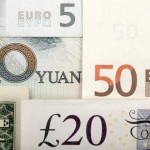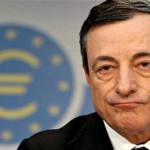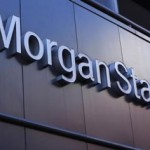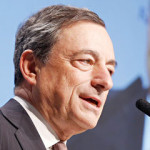Dollar Tumbled as Yen, Euro Rally on Irma, ECB
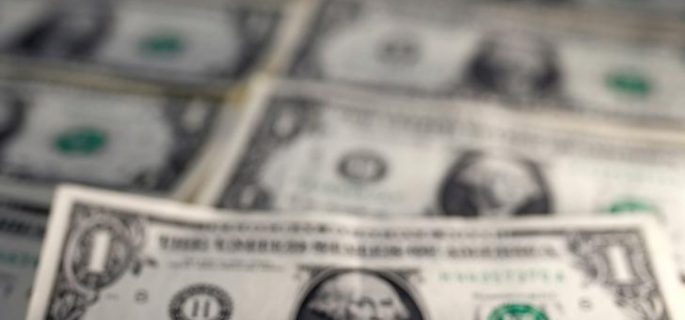
The dollar tumbled to its weakest level since the start of 2015 as fading expectations of U.S. interest-rate increases, North Korea tensions and a historically powerful hurricane unsettled investors. The euro was near the highest since January 2015 after the European Central Bank stopped short of attempting to jawbone it lower. Stocks in Asia were mixed.
The dollar’s decline deepened during Asian trading on Friday as the yen hit its strongest since November and investors girded for potential economic damage to Florida from the historically powerful Hurricane Irma. The Australian dollar surged to the highest in more than two years. Asian equities from Tokyo to Sydney fluctuated and European stock-index futures declined with S&P 500 contracts. Ten-year Treasury yields fell toward 2 percent. Gold headed for a third week of gains ahead of a potential North Korean missile launch.
“Where the Asian markets are concerned they have been in a really solid run this year so at some point there has got to be some profit-taking, some revaluations of the positions,” Kelvin Tay, regional chief investment officer at UBS Wealth Management, told Bloomberg Television. “The North Korean crisis, hurricanes in the U.S. and perhaps the usual lull in summer activity are the main reasons why the equities markets are not moving very much.”
ECB President Mario Draghi cautioned on the common currency’s strength on Thursday though didn’t expand on any action to address it. He said he’s watching the euro’s gains as policy makers edge toward settling the future of their bond-buying program. The euro’s surge — more than 14 percent against the dollar this year — was reflected in a downgrade to the ECB’s inflation outlook, though Draghi said economic growth remains solid.
Federal Reserve Bank of New York President William Dudley was the latest U.S. central banker to lay out his views ahead of a policy-setting meeting later this month as expectations for an interest-rate increase have been scaled back. Dudley reiterated the need to continue raising rates while conceding that the Fed may have to rethink its inflation model.
Meanwhile, the threat from North Korea lingers. U.S. President Donald Trump said it’s not “inevitable” that the U.S. will wind up in a war with North Korea over its continued development of nuclear weapons, though military action remains an option. Pyongyang may test a missile this weekend.
The key events this week:
- Japan revised down its second-quarter economic growth to an annualized 2.5 percent from 4 percent, weaker than expectations for a revision to 2.9 percent.
- Australia’s home-loan approvals rose 2.9 percent in July, beating estimates.
- China’s export growth slowed in August from a year earlier, while the trade surplus came it at $42 billion.
- China’s forex reserves climbed $11 billion to $3.09 trillion in August, a seventh gain in a row as the yuan rose, the PBOC said Thursday.
- Also due in Asia are Taiwan exports.
- Malaysia’s central bank held its main rate at 3 percent Thursday as expected.
- U.S. jobless claims surged last week by the most since November 2012 because of benefit claims from Hurricane Harvey. They increased to 298,000 versus an estimate of 245,000.
- The White House is considering at least six candidates to succeed Janet Yellen as the next Fed chair, people familiar with the matter said.
And here are the main moves in markets:
Stocks
- The Topix index closed 0.3 percent lower in Tokyo, while South Korea’s Kospi index fell 0.1 percent and Australia’s main gauge was 0.3 percent lower.
- The Hang Seng Index advanced 0.4 percent in Hong Kong. Gauges on Chinese markets swung between gains and losses.
- Contracts on the S&P 500 Index lost 0.2 percent after the underlying benchmark closed little changed on Thursday. The Nasdaq Composite Index and Dow Jones Industrial Average also barely budged.
- The Euro Stoxx 50 index declined 0.2 percent as of 7:36 a.m. London time.
- The MSCI Asia Pacific Index climbed 0.4 percent to the highest since December 2007.
Currencies
- The Japanese yen rose 0.6 percent to 107.83 per dollar.
- The euro increased 0.3 percent to $1.2061 and the Swiss franc advanced 0.5 percent to 0.9454 per dollar.
- The Australian dollar jumped 0.7 percent to 81 U.S. cents.
- The Bloomberg Dollar Spot Index fell for a seventh day, down 0.3 percent and on track for a 1.6 percent decline in the week.
- The Mexican peso fell as much as 0.3 percent after southern Mexico was hit by a magnitude 8 earthquake that was felt in the capital and prompted a tsunami warning. It rebounded to trade at 17.6898 per dollar.
Bonds
- Yields on 10-year Treasuries were at 2.02 percent, after falling more than six basis points Thursday.
- The Australian 10-year bond yield slumped six basis points to 2.58 percent.
Commodities
- Gold rose to $1,353.15 an ounce and touched its highest in a year.
- West Texas Intermediate crude was steady at $49.10 a barrel.
Source: Bloomberg – Dollar Tumbles as Yen, Euro Rally on Irma, ECB: Markets Wrap









